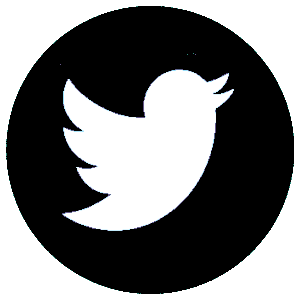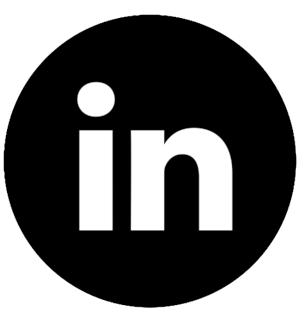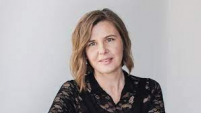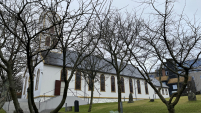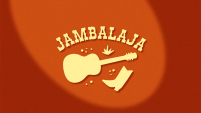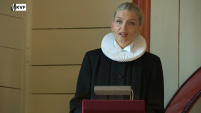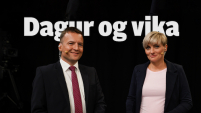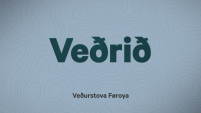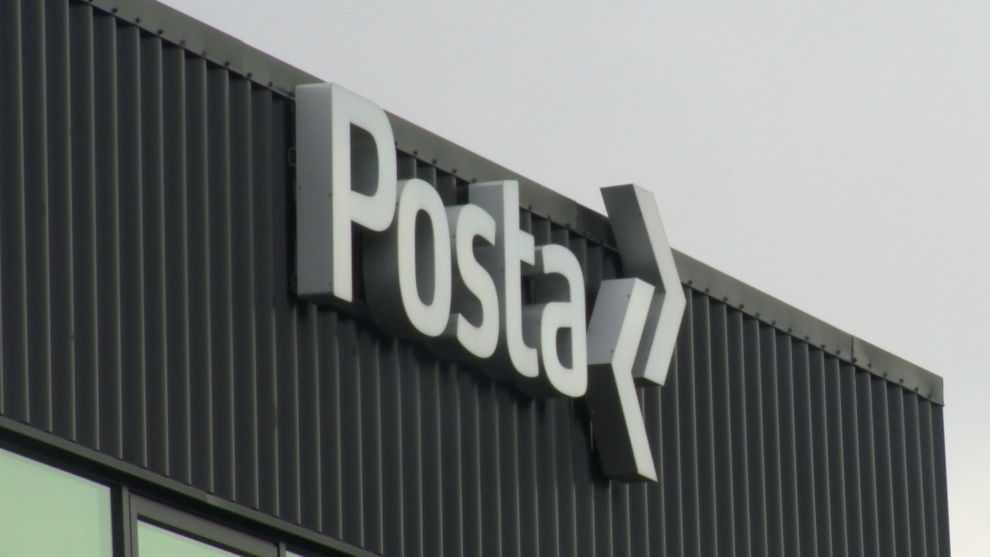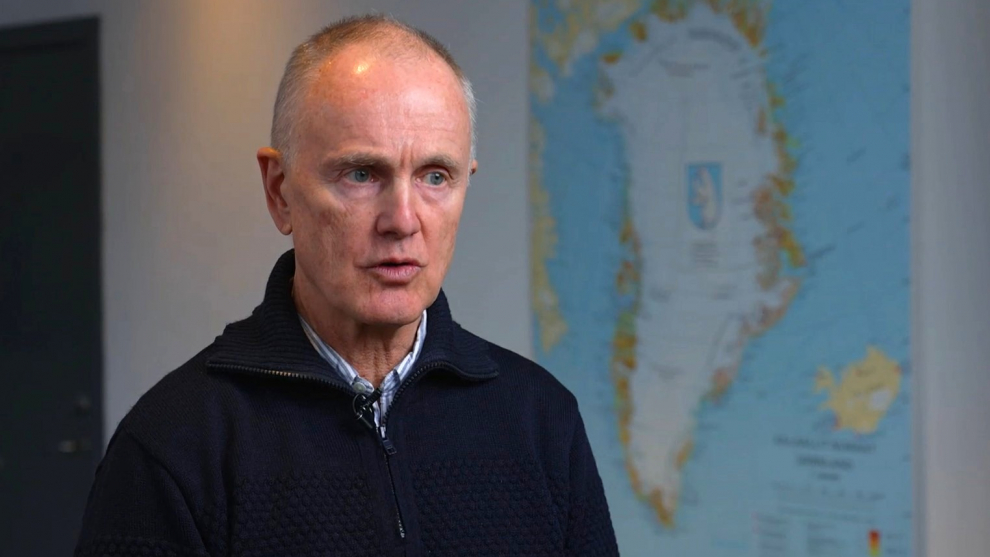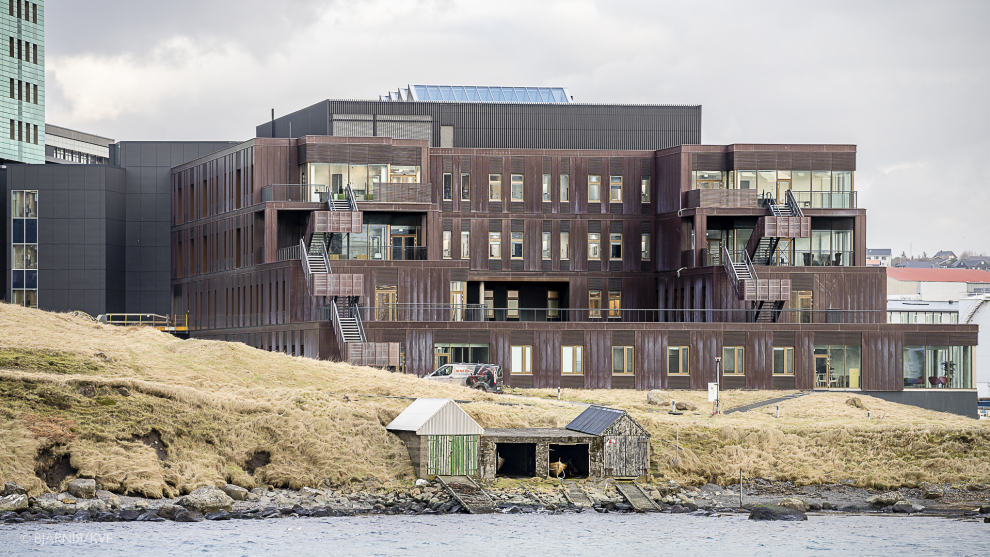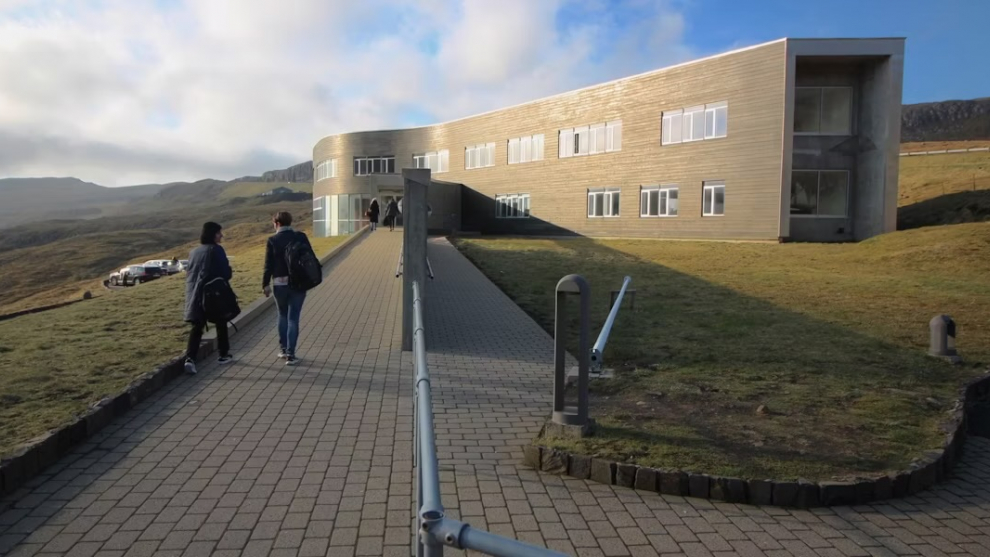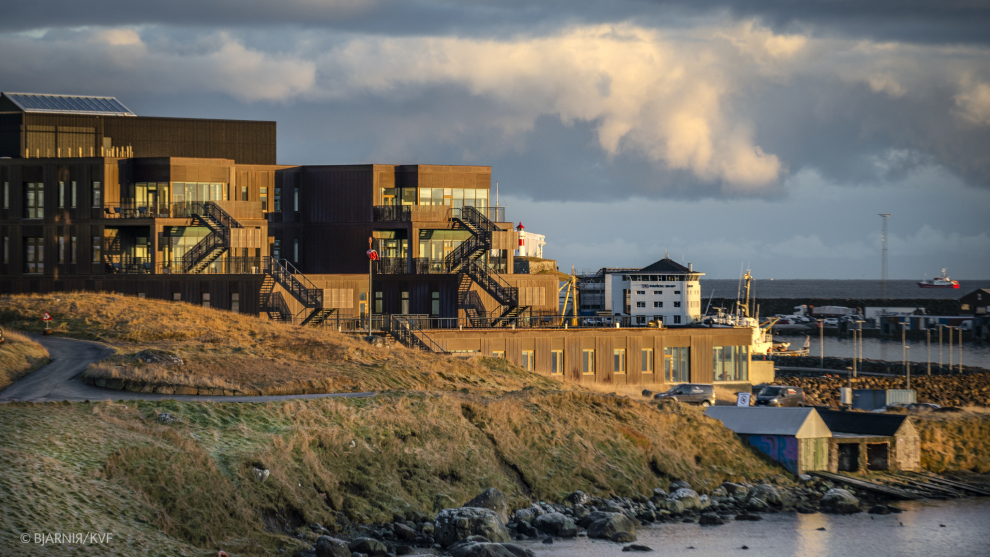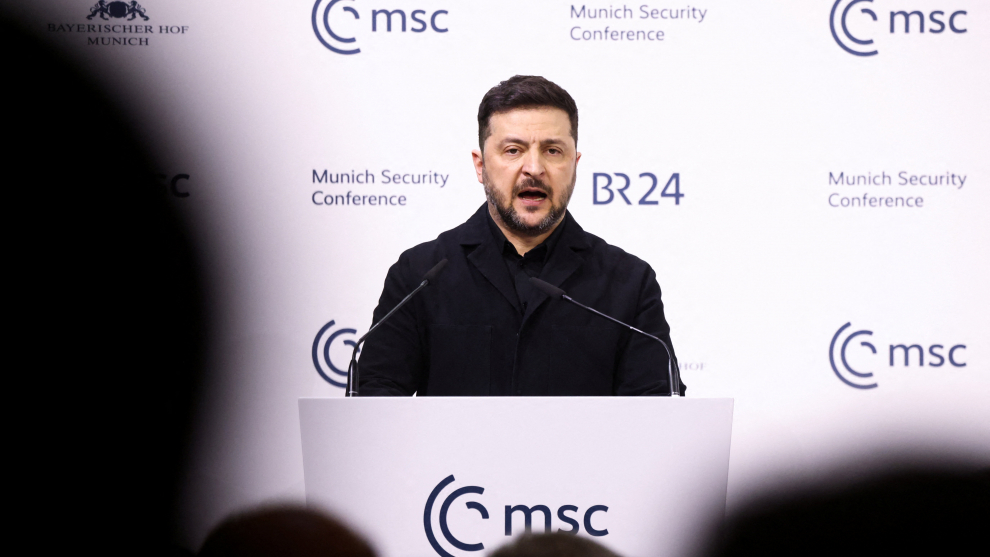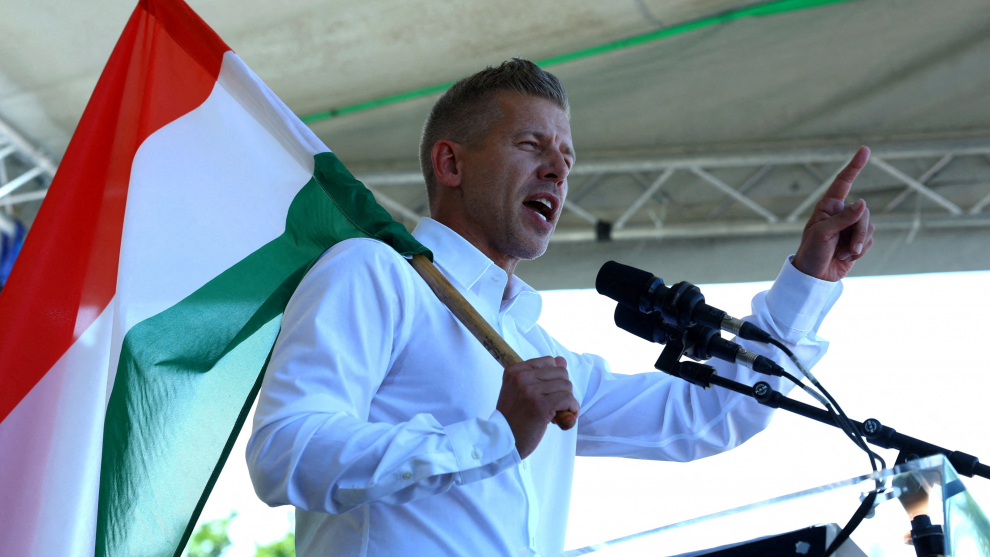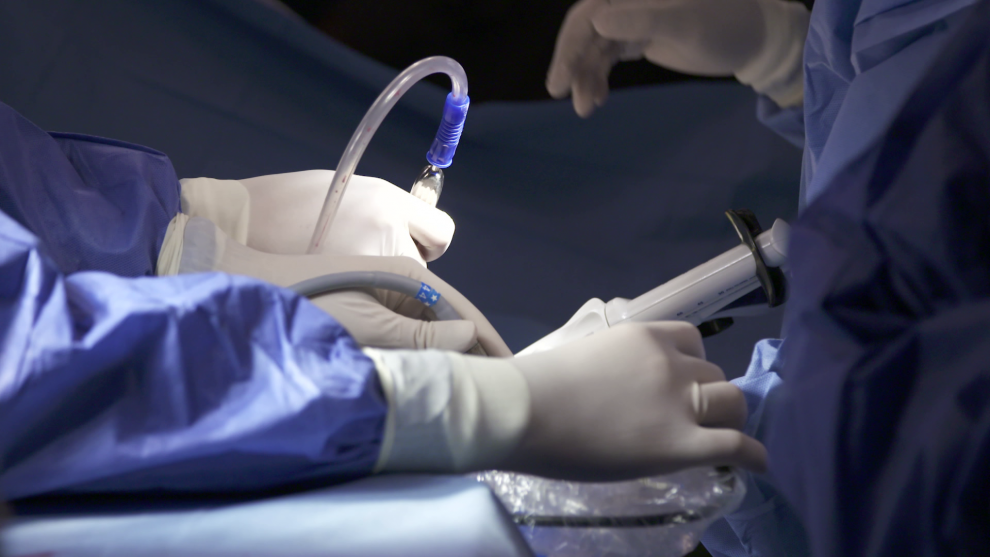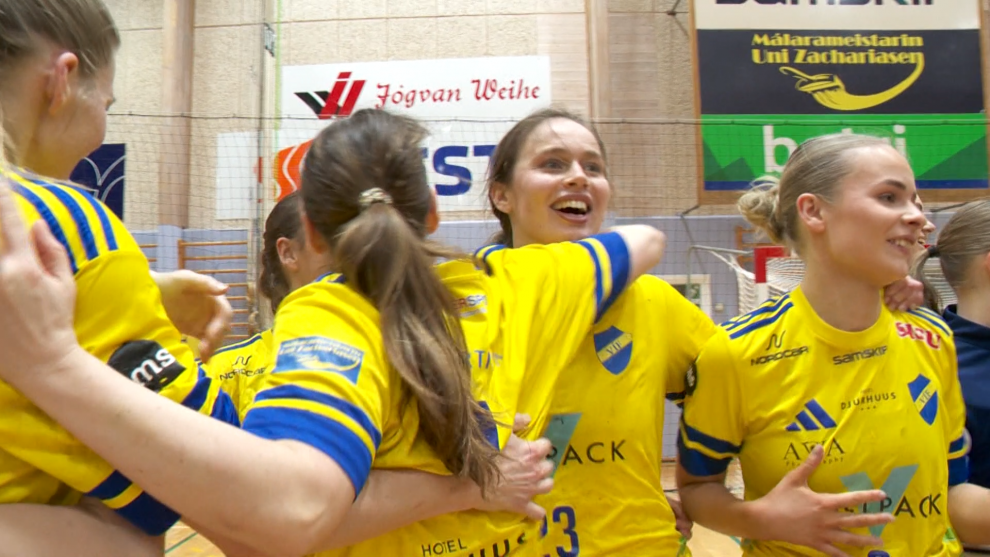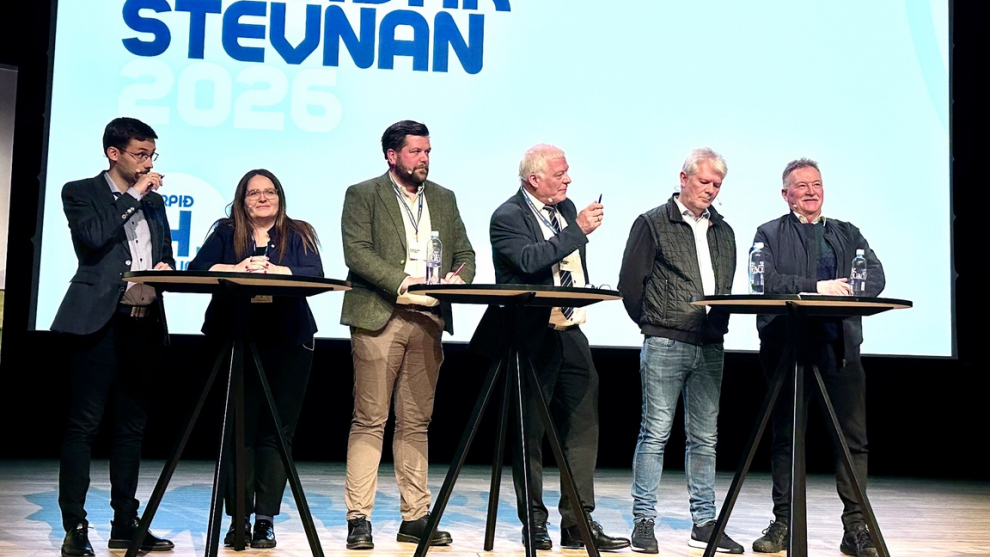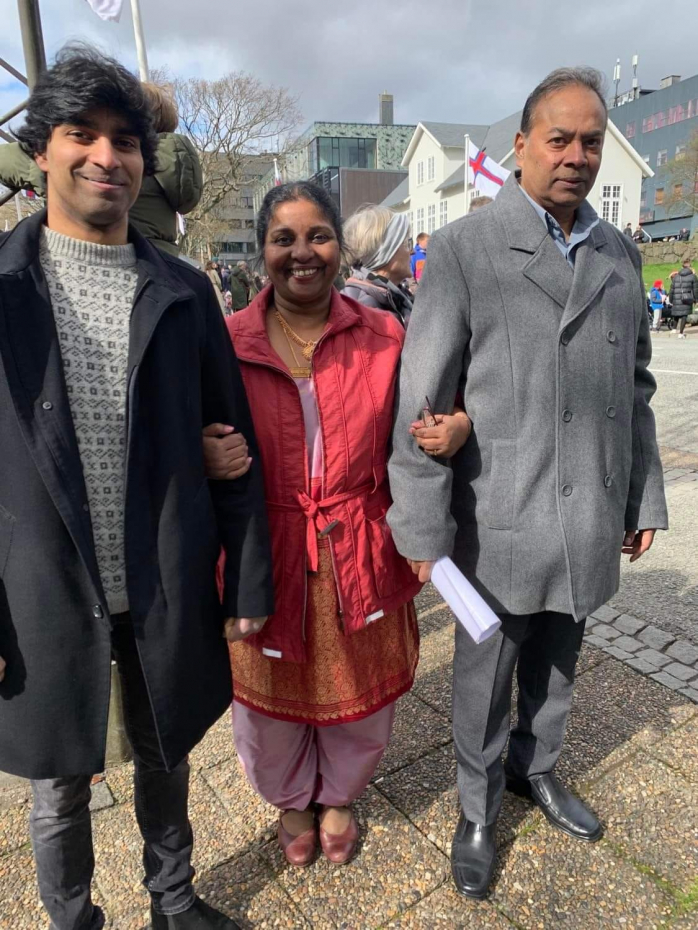
- Tíðindi, mentan og ítróttur
Flag Day speech – from an immigrant perspective of inclusion
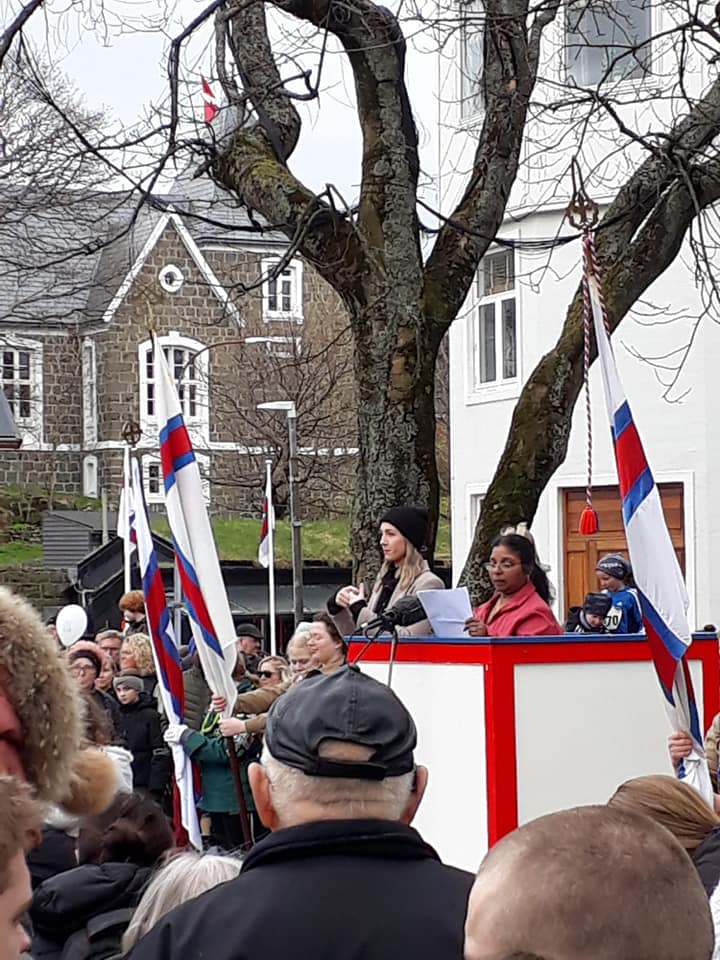
Kalpana Vijayavarathan emigrated from India to the Faroes in 1991 together with her husband Abraham (Viji).
She holds a PhD in the Teaching of English as a Foreign Language and works as a researcher and lecturer at the University of the Faroe Islands.
Kalpana was asked to write and deliver this year’s Flag Day speech.
She wrote the speech in English and delivered a Faroese translation of it, courtesy of Jonhard Mikkelsen, in Tórshavn’s city centre yesterday.
Here is the English version:
>> SEE ALSO Integration is more than just learning a new language
Dear people of The Faroe Islands
We stand here this afternoon with Merkið flying high telling us that we are gathered for a meaningful celebration in these beautiful Islands we call home. Merkið symbolises the strength, fervent passion and love for country and fellowmen that have built the Faroe Islands into the nation it is today. We stand on the shoulders of our forbearers who crafted this land, and we reap the fruits of their labour. We mark their footsteps but make our own as we navigate new times and challenges. We make efforts to create a nation that is strong and resilient – one that is able to hold its own in an increasingly dynamic and sometimes turbulent external environment. We know that change is the only constant. Forces that enable and restrain us shape the Faroe Islands as the country grows and adapts to its duties and obligations as a developed nation aiming for greater influential presence in both Nordic and international contexts.
>> SEE ALSO Immigrant’s poems gaining instant popularity
The strength of a nation rests on its ability to cooperate with other nations and communities in a fruitful and flexible manner. To do this successfully requires building the capacity to view oneself through the eyes of others. Collaborating with other nations has very much been part of the business culture of these Islands in the past and is still the case in the present. These collaborations are even more significant for the future as we recover from the COVID-19 pandemic and are feeling the impact of the war in Ukraine. Today, more than ever, it is important for us to work together to ensure that the world becomes increasingly entrenched in democratic values and ideas of equality regardless of any and all differences. The Former UN Secretary-General Kurt Waldheim emphasised that there is "no future for mankind unless tolerance and understanding between cultures and nations become the rule rather than the exception". No country can stand on its own, and as members of the global village, we too need to maintain already established connections and build new bridges to the outside world for mutual advantages.
>> SEE ALSO Immigrants struggle to make use of their skills
Yes, we are a small nation but a strong one. If we continue to reinforce current competencies and focus on developing new ones, particularly digital innovation, we can create a dynamic economy. For economic and social progress, resources need to be managed wisely and in a sustainable manner. One cannot deny that a nation’s people are its greatest resource and asset, and I give importance to them in my address today.
So, who are the people in these Islands? Our nationhood as Faroese people comprises roughly 53.792 people. In January 2021, non-Nordic citizens residing in the Faroe Islands accounted for 4,4% of the population representing 98 different countries. The picture is one of a fairly diverse nation with all the richness that this implies for the identity and potential of this country. We cannot ignore that our nationhood today is one of unity in diversity. Cultural selfcomprehension as a nation is a useful way to understand ourselves and other cultures better. We are a multi-ethnic, multicultural and multilingual society – this diversity can be used in a constructive and useful manner to build the Faroe Islands. There is always something positive to learn from other cultures just as they have much to learn from Faroese culture. Dealing with differences using an inclusive approach and showing tolerance for ethnic, cultural and religious differences is key to equity and social justice in the Faroes of today. Nothing less is acceptable from a nation which claims to be a significant welfare state and a player in the global arena.
>> SEE ALSO Financial support for immigrants learning Faroese
The cultural and social capital we have from being a multicultural nation should be anchored in a proactive manner towards contributing to greater social cohesion and understanding. In order to be tolerant and co-exist, we first have to appreciate each other's socio-cultural identity. Intercultural knowledge contributes to creative thinking, complements productivity and provides competitive advantage which is important for a robust economy.
We have to focus on building a strong nation within the microcosm of our reality in a manner that will help us withstand pressures from outside, so we can preserve that which is unique to The Faroe Islands. Of course, what is unique must change with the times, otherwise we will stagnate and go nowhere. We have to tread a fine balance between defining our reality as a multicultural nation and create processes that enable us to change while being true to ourselves.
>> SEE ALSO Meet your new integration vicar
We proudly proclaim that the Faroe Islands is a welfare state and often compare ourselves to other nations and call ourselves fortunate. Fortunate we may be to live in this ‘last paradise on earth’, but are we on the right track? Any welfare state worth its salt has to focus on education and health care as two important mainstays of society. An educated, healthy workforce in all walks of life is crucial to nation-building, progress, competitiveness in a globalised environment and is the backbone of society. In the year 2022, it is ridiculous to be discussing whether academic or vocational education is more valuable and the most important. We need to acknowledge the pivotal role that all education plays in creating a workforce that serves the needs of Faroese society and the world at large. More importantly, our country should be thinking of a creating a happy and satisfied workforce and consciously committing to creating well-being for all. Education and healthcare determine the direction a nation can take towards establishing a growth strategy to ensure that the Islands are well-placed to cope in the digital economy – we ignore these aspects at our peril.
>> SEE ALSO 2022 – a big year for integration
So, we need to ask ourselves: do we have enabling educational policies that underpin our educational approach to developing our people? Is educational policy quality and meritoriented or oriented towards balancing the books? Do we invest in education in a manner that creates excellence and the best outcomes for students? Do we invest in the professional development of our educators? Do we respect the significance of all education and create frameworks to ensure that it meets the needs of society today in the jobs it creates as well as being geared to fulfil future demands? Is digital education in the forefront of our educational systems? These are key questions, and the answers we arrive at will tell us whether we are set on the right path, because there is much to be done to create citizens of tomorrow.
When we speak of healthcare, this sector is undoubtedly one of the most important in its impact on the development of any country because it is directly concerned with people who are a country’s most precious asset. Healthcare contributes to economic stability and has to be driven by up to date research. An under sourced and understaffed healthcare system cannot meet the needs of society optimally. It is important that we invest in the education and training of our health workforce and create a robust health system. The digital revolution in this field requires digital solutions and upskilling the health workforce so they can provide quality service. So, as a nation can we say that we are ready to provide the kind of healthcare that is needed? Have we invested wisely, are we patient-focused, is funding for healthcare sustainable and optimal? As education and health are vital pillars to ensure a strong, welfare nation they have to be given thorough consideration. Do we ensure that education, health and welfare are given priority in our policies? I will leave you to answer these questions to evaluate our nation’s status quo.
>> SEE ALSO A truly international school
As a citizen of this country, I have a vested interest in its success and its economic growth. I came to these Islands on May 16, 1991. Much has changed since then in this country that I claim for my own. I recall being interviewed by one of the national newspapers on how I felt Faroese people will fare in the economic crisis – I had been less than a year here then, and my response was that they would cope because I saw the Faroese people as strong, brave and resourceful. In my nearly 32 years here, I have seen this country grow and change. While everything has not been positive, one thing is clear – this country has strength, grit and determination and can make its mark in several ways, provided it builds up and strengthens its most precious asset – the people in the Islands. People set the agenda, people create the culture, people move the nation in the direction it has to go. It’s people who can change or not. Our leaders have a significant impact on change and the direction of the nation. So, I ask, do our leaders do their utmost to lead our country in the right direction? Do they promote an inclusive approach in their policies, so all people are treated equally? If we get the leaders we deserve, are we doing enough to choose the best leaders?
>> SEE ALSO Language barrier has a ripple effect on newcomers
The Faroese language is fundamental to our society, and this is only right. We see it as a heritage to be preserved, but language is dynamic and will change like everything else. It is important to remember that this language is the property of all who speak it. It’s just as much mine as it is the property of ethnic Faroese people. It is not the privilege of just the few, neither is it a weapon to be used in the ‘we’ and ‘you’ discourse and ‘othering’ of people. Faroese is to be highly respected, as also the heritage languages of all the peoples who comprise this multicultural Faroes of 2022 and beyond.
We are all justifiably proud of our country – our emotions proclaim a feeling of patriotism especially on a day like this when Merkið makes our hearts flutter. This quotation from Sir. Walter Scott captures the emotions I speak of,
“Breathes there the man, with soul so dead,
Who never to himself hath said,
This is my own, my native land!”
>> SEE ALSO Integration bill “too one-sided”
But reason must play its part. To hear us speak of our country, it would seem that we are David to the world’s Goliath. This self-assurance is all well and good, but it is important to remember that a country is made up of individuals. The dignity of the individual is paramount in a civilised nation, and it is no secret that is what we claim our country is. We need to respect each individual, even if we cannot understand or agree with their point of view. Every person is valuable and has a role in Faroese society. This puzzle of various cultures, peoples and traditions requires every piece to achieve completion. Our country has to stay strong, and we must remember that “United we stand, divided we fall”.
Acknowledging, enabling and respecting the role of women can never be exceptions to the rule. These factors are inextricably linked with inclusiveness that underpins the fabric of any civilised, cultured and enlightened society. It is not far that we have come since the dawn of civilisation if we are still content with a parliament of just one gender. A symbolic role for women does not equity make. Wake up Faroe Islands and act – wake up women, and let’s live up to our potential fully!
>> SEE ALSO Report describes struggles on non-western women
While India shaped me as a child, a young woman, a professional and an individual from 1963 to 1991, the Faroe Islands have picked up the baton since and shaped me as a wife, mother, professional and individual, and it will keep on doing so. It is with pride and pleasure that I give this speech today as a daughter of these Islands. I am grateful for this opportunity and thank Havnar Hornorkestur for the honour. It is my fervent hope and prayer that The Faroe Islands will continue to be worthy of the Merkið, celebrate the diversity that illustrates the reality of life here and harness the strengths it gives this nation.
I too sing, “Føroyar mítt land” as I acknowledge this country and its place in my heart. “Gud signi Føroyar, mitt land”.
For the Faroese version of the speech, visit Kalpana's Facebook profile.
More Faroese News in English.

